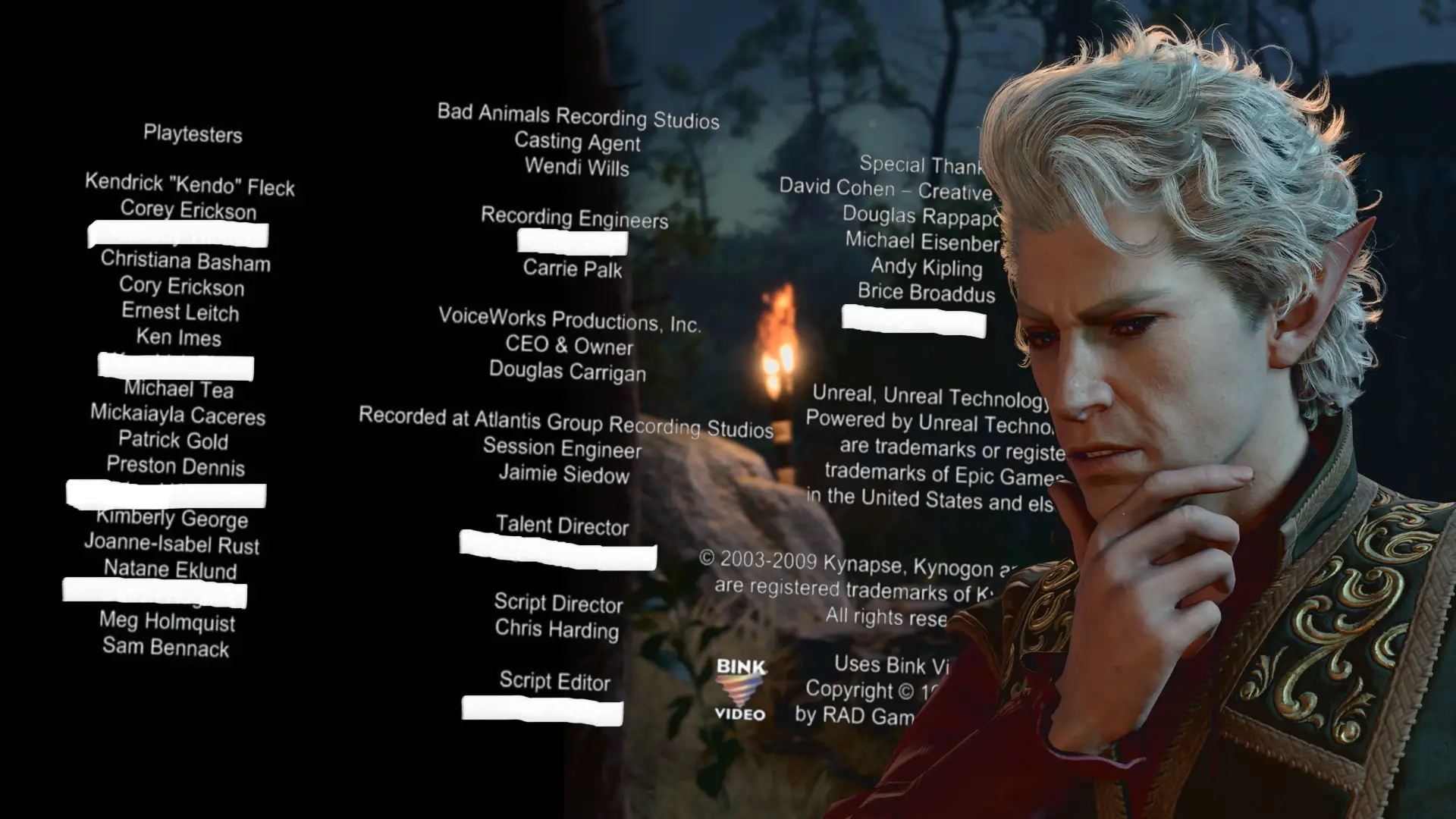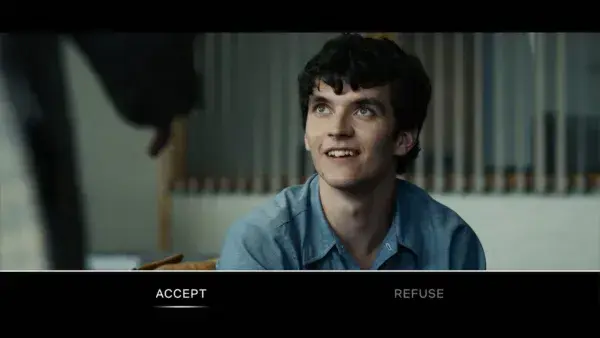
As Baldur’s Gate 3 scrambles to include localisers denied a spot on its credits roll, we wonder when studio bosses will start to play fair.
Earlier this week, Baldur’s Gate 3 developer Larian scrambled to undo an injustice which saw the translators who worked on localising the RPG’s one million(!) words excluded from the game’s hefty credit roll.
Altagram Group – the company that led Brazilian Portuguese localisation efforts and somehow managed to remember the names of its c-suite but not its freelancers – apologised, acknowledging that the “omission of translator credits from [its] contribution to Baldur’s Gate 3 has generated frustration and disappointment”.
The firm then issued a lengthy statement encompassing its learning points and promised that it was reviewing the “failures” in its systems that let this happen. It concluded by essentially thanking Larian for holding its feet to the fire, and we’ll apparently see the credits patched in via an upcoming update.
A one-time omission could be accidental, of course. It happens. But in news unlikely to shock you – please try and look surprised – this isn’t Altagram’s first we-forgot-to-credit-you rodeo. As recently as June 2023, the company was called out on Xitter for “accidentally” failing to do exactly the same thing, only that time it was to German translators that had worked on Diablo 4. To Altagram’s credit, it did acknowledge the message at the time, saying that it was “truly sorry for the trouble” and promising that it was “working on it”. I have no idea if that resulted in a conciliatory patch, too, or just more empty words.
The sad fact, however, is that although many games boast credit rolls that scroll up for the best part of an hour, intentionally excluding staff from the credits is an age-old tradition around here.
What’s that? You worked on The Callisto Protocol full-time for over a year but moved onto an exciting new opportunity just before the horror game released? Of course you’re not going to be credited, my friend.
Sure, maybe you helped bring Persona 3 and 4 to French, Italian, German, and Spanish audiences for the first time ever and expected to see your name when the credits rolled, but… c’mon. Only Keywords Studios’ management get that kind of treatment. And just because you worked on the original Metroid Prime doesn’t mean you’ll get a credit in the Metroid Prime Remaster. Duh.
There’s no part of this that isn’t wrong, of course. It makes it unnecessarily more difficult for developers – particularly early career ones – to provide evidence of their industry experience. But more than that, it’s a puerile, punitive way of belittling individual contributions, and it’s a gross – and grossly unfair – practice that’s been left unchallenged for way too long.
I’m sure there are people out there willing to justify the unjustifiable, but I’ve yet to find an alternate lens through which to view this, or a coherent whataboutism counter accusation that manages to justify it, either. And as long as there’s no standardisation for game makers as there is for TV and film, individual contributors – be they full-time, freelance, or contractor – will continue to be at the mercy of their bosses and supervisors when the credits finally roll.
But wait – it gets worse! Infamously, Rockstar Games was pulling this kind of stuff a decade ago, refusing to credit anyone who left the studio mid-development, even for games with lengthy development cycles like Red Dead Redemption 2. But to add insult to injury, Rockstar has even cut people who didn’t even choose to leave, laying off dozens of developers right at the end of the development of Grand Theft Auto 5 and then blithely cutting them from the credits, too.
Does it prevent developers leaving mid-project and potentially upsetting a game’s continuity? Hmm. Maybe. But you’ll never convince me that a worker who stays for fear of being cut and/or denied the opportunity of putting a game down on their CV – because yes, that happens too, I’m afraid – will be cranking out the quality and care you’d get from someone who’s voluntarily committed to your project. We’ve all had a supervisor that’s made us feel like crap and forced us into taking on a project we didn’t want to do, so we all know firsthand how instantly demotivating that can be. No one does their best work under duress.
And yes, game credits are long. Yes, some players may say they’re too long. But that’s not an excuse, either. Personally, I’ve always got immense satisfaction every time the credits rolled – yes, even the unskippable ones – revelling in the post-boss-fight glow and enjoying the time and space to reflect on the journey that led me here. I’m certain I’m not the only one. But even if Diablo 4’s credit sequence already takes 40 minutes to play, does adding in a handful of names of the hardworking folk who localised the text do any harm? No. Of course not.
It’s time the leaders of game studios – big, small, triple-A, indie – start playing fair and giving credit where credit is due.
Vikki Blake has a column every week here at whynow Gaming. You can read her previous dispatch here.





